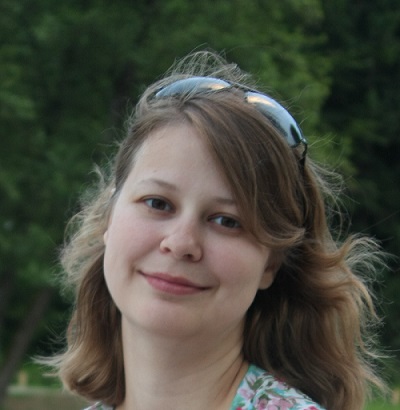Maria Petrova has obtained an ERC Starting Grant to study the keys to the success of populism
The ICREA research professor with the Department of Economics and Business at UPF, linked to the IPEG, is to receive close to 1.5 million euros to carry out her research. The same grant has been obtained by Edouard Schaal, CREI-UPF researcher, for a project on transport network optimization.

Maria Petrova, ICREA-UPF research professor with the Department of Economics and Business, linked to the Institute of Political Economy and Governance (IPEG), has obtained an ERC Starting Grant from the European Research Council (ERC). The researcher will receive a grant of 1,467,736 euros to carry out, over five years, research focusing on the various personal factors and factors of the social and media environment that help to explain the phenomena of populism and extremism.
Maria Petrova is to study whether personal experiences, the information environment and interaction with economic shocks shape the political decisions people take
Entitled “The Rise and Fall of Populism and Extremism” (EXTREME), and in the wake of the electoral success in recent years of populist politicians belonging to advanced democracies that support extremist messages, professor Petrova’s project seeks to demonstrate empirically whether personal experiences, the information environment and interaction with aggregated economic shocks shape the political decisions people take. Analysing whether populism is caused by these negative economic shocks and which mechanisms are involved, and which factors explain the heterogeneity of responses to these shocks, are at the centre of her research.
An ambitious project divided into three distinct parts
In the first part of the EXTREME project, Maria Petrova will be studying how personal stories of employment, potentially affected by globalization and technological shocks, individual predispositions and the information environment influenced voting for Trump. She will use a single database of more than forty million CVs for the period 2010-2016, the largest repository of resumes of job applicants in the United States available, which had not been used previously in academic research.
 In the second part, she will be analysing how negative social experiences during peoples’ years of education can later affect results in the labour market, anti-social behaviour and support for the populist agenda. One of the aspects she will be examining is how corporal punishment in schools in the United Kingdom had a subsequent effect on academic success, employment, anti-social behaviour and voting for UKIP and Brexit.
In the second part, she will be analysing how negative social experiences during peoples’ years of education can later affect results in the labour market, anti-social behaviour and support for the populist agenda. One of the aspects she will be examining is how corporal punishment in schools in the United Kingdom had a subsequent effect on academic success, employment, anti-social behaviour and voting for UKIP and Brexit.
Finally, in the third block she will be studying the factors that explain why people actively resist extremist regimes, even when associated with high personnel costs. She is to analyse an example of resistance to the Nazi regime in Germany during the Second World War, which offers a unique methodological opportunity to understand the determinants of resistance to extremism in a highly stable environment.
In addition to her work at the Department of Economics and Business at UPF and at the IPEG, Maria Petrova is also linked to the Barcelona Graduate School of Economics (Barcelona GSE), to the New Economic School and to the Center for New Media and Society, both in Moscow (Russia), and to the Centre for Economic and Political Research (CEPR) in London.
A doctor of Economic Policy and Governance from the University of Harvard (2008), Maria Petrova is an applied microeconomist who focuses on the information economy, the political economy and development. She seeks to understand how information flows affect the complex links between economic and political phenomena, and how this information affects political, economic and financial results.
ERC Starting Grant for Edouard Schaal, researcher of the CREI-UPF
Besides Maria Petrova, at this 2018 call, an ERC Starting Grant has also been awarded to Edouard Schaal, a researcher at the Center for Research in International Economics (CREI-UPF), a centre to which the UPF Group belongs, for the project “Optimal Transport Networks in Spatial Equilibrium”, which will examine the creation of an optimal model of transport networks to help the planning of infrastructure in this field.
In all, at this 2018 call for ERC Starting Grants 403 researchers from 44 different countries will receive funding of up to 1.5 million euros, totalling 603 million euros, in order to develop their research. Starting Grants target excellent researchers who have between two and seven years of postdoctoral experience. With this grant programme of up to five years, support will be given to young researchers so that they can set up their own research groups in projects at the cutting edge of knowledge.
